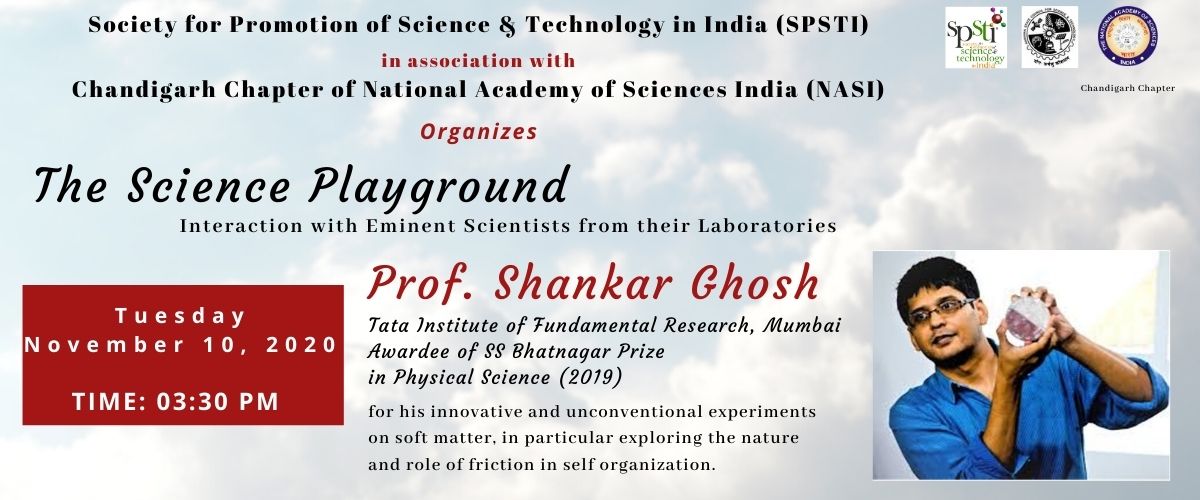A playground is a place to move, explore and enjoy. The laboratory is the scientist’s playground, one which a young student can identify with! However, budding scientists studying in our schools and colleges seldom ever get an opportunity to see the workings of any research laboratory. To bridge this gap, some eminent science communicators of the region conceived of a new web series called “The Science Playground”. Lecturing and interacting from their laboratories will be very eminent young scientists of the country. The first of these expository lectures was presented by Prof. Shankar Ghosh from Tata Institute of Fundamental Research, Mumbai, awardee of S. S. Bhatnagar Prize in Physical Science, 2019.
The series is organized by the Society for Promotion of Science & Technology in India (SPSTI) and the Chandigarh Chapter of National Academy of Sciences, India (NASI) and is supported by the Haryana State Council for Science, Technology & Innovation, Govt. of Haryana. It was launched today, on the Zoom platform, with 100 attendees on the zoom window and over 5,000 reach on the Facebook page of SPSTI from various places all over the country. Prof. Arun Grover, former Vice-Chancellor, Panjab University, Fellow, NASI, and Vice President, SPSTI, greeted all those present and introduced this series of lectures emphasizing its benefits. Prof. Sudesh K. Dhar, also from TIFR, introduced the speaker, Prof. Shankar Ghosh, to all.
Prof. Ghosh’s presentation was carried out from his laboratory at TIFR, Mumbai, one of the premier Scientific research institutions in the country. He showed objects of various shapes and discussed ways of transforming a flat surface to one solid shape to another. The path-breaking research for which he won the Bhatnagar award consisted of non-conventional ways of looking at the phenomenon of friction. He showed various experiments concerning this, with sand piles, toothpicks (yes, we all could perform this one), ball bearings, and such commonplace things. Further, he showed experiments using a focused laser beam (famously known as optical tweezer) and spoke about their importance in the fundamental understanding of nature.
The lecture was appreciated by a spell-bound audience of educationists, scientists, students, and teachers. Questions and discussions mainly consisted of the practical part of the theme that was summarized by the speaker in an effective manner.
The president of SPSTI, Sh. Dharam Vir, said the other interactive lectures in the series would follow soon and will be announced.

